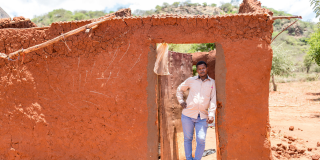
Peace is the foundation stone on which safe, secure lives are built. But, right now, 28-year-old Galgalo and his family are in danger even in their own home. “There is conflict here,” Galgalo explains…
It is a dry, hot day near the Kenyan border with Ethiopia. Galgalo, his wife, Guyatu*, and their four-year-old daughter, Chaltu* are standing in their house. Look up and you can see the sky. That’s because the roof blew away and the couple don't have the means to repair it. Extreme weather is now the norm.
Galgalo’s community is caught in a cycle of longer, harsher droughts followed by floods and high winds. The weather in this region is becoming more extreme, bringing a new threat. There’s growing competition for water, land and other limited resources, and the result is conflict.
Galgalo is a farmer. During the last drought, all of his livestock and crops died. Hunger is increasingly a part of the family’s lives. Often, they have only one meal a day of githeri, a mix of maize and beans. Guyatu, like many women in the community, takes on the job of collecting water. She walks to a dam 10 kilometres away, twice a day, taking little Chaltu with her. It’s a gruelling task that takes up to four hours of their day.
“It’s far,” Guyatu explains. “I spend most of my time going to fetch water.” All this to collect water which isn’t even safe to drink because animals use it.
Climate change is fuelling conflict
Life is getting harder for families here, and Galgalo has seen tensions rise. In this area, many people keep cattle, and drought has forced herders to travel further to find water, food and grazing for their animals. Often, this takes them into land which people are cultivating, and two ways of life clash.
There have been reports of cattle-raiding. But Galgalo is most fearful when armed groups from the conflict in Ethiopia spill over the border, bringing violence with them. Galgalo and Guyatu are desperate to keep Chaltu safe. At a moment’s notice, they are often forced to run from their home, and try to escape on roads that are impassable in extreme weather.
I have had to flee my house five times in the last year. I fear for my family.”
VSO volunteers are working with Galgalo and other farmers to adapt to climate change, but conflict could destroy their progress. That is why building peace is at the heart of our work here, and in a growing number of communities.
The causes of conflict
A wider conflict spreads
In Ethiopia, the government is fighting a local militia in a conflict that spills over the border, with armed groups crossing over into Kenya.
The impact of climate change
The area is caught in a destructive cycle of drought, flooding and strong winds, which is destroying crops, killing livestock and forcing people from their homes. Climate change has fuelled increased competition for land, food and water, and sown the seeds for another conflict.
Local clashes
Farming families have had to move further in search of grazing land, sometimes into land that other communities inhabit, causing different ways of life to clash. With few prospects, some young people have been drawn into smuggling, human trafficking and other forms of crime. Cattle-raiders, stealing people’s precious livestock, have increased local tensions.
No voice
Communities, frequently forced to flee, do not feel heard by local and national government.
People need peace to build safe and secure lives
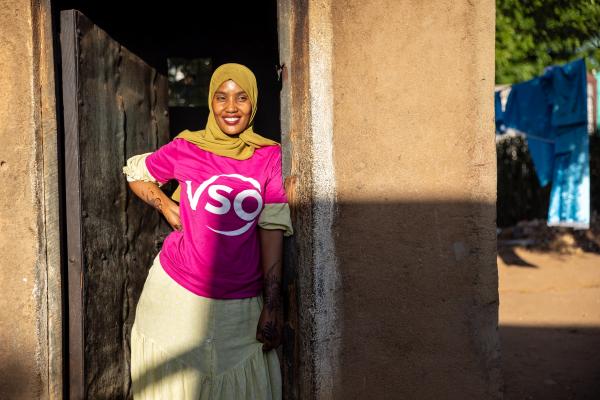
People need peace, safety and security, but they don’t just happen. People need to work for them. With your support, VSO volunteers are bringing Galgalo’s community together to discuss the problems they share. Conflict, climate change, having no voice and feeling powerless. As they have discovered, there are active steps they can take together.
People often feel powerless when conflict is being waged around them. As a woman, Guyatu understands that she is at greater risk of violence and asked that we don't show her face or her daughter's in photos. Yet women have had little say in her community. "Women aren't involved. We need to be," she says.
Rahma, a mother with two children, shared her frustrations. Rahma and Guyatu have now both seen that, if you want peace, you have to build it.
"I grew up in a family of two conflicting tribes," Rahma explains. "My experience of conflict was being forced to run from Kenya to Ethiopia, and not being able to go to school." The violence continued for years. "There was no ownership in finding or building peace." But that changed when VSO started working with the community.
For Rahma, there was finally a chance to play her part. "I wanted to help my community, but I didn't know how," she says, "VSO's training has guided me through my journey."
As a VSO volunteer, Rahma trains women and young people like Galgalo and Guyutu on their rights, and the importance of peace. "For peace to prevail in society, we need to work on issues including child marriage, female genital mutilation, education and poverty."
Speaking out to achieve change
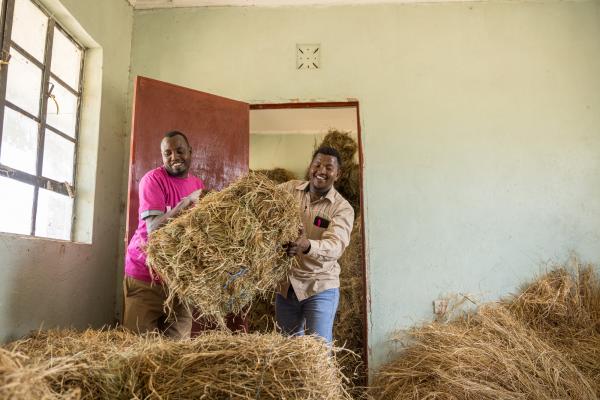
With your support, VSO is working with 21 peace committees, set up to bring communities together. Through meeting and talking, people have seen that many of their problems are shared.
Understanding has grown and friendships have formed between individuals who might otherwise be adversaries. The committees act as far more than a bridge between communities. They've also opened a dialogue between local and national government and people who previously felt voiceless.
Galgalo is a member of a peace committee. He's also involved in other activities to help the community to adapt to climate change, including goat farming and hay-making. VSO volunteers trained Galgalo and other farmers in the practice of cutting grass after the rains and storing it as hay.
With your help, they're now equipped with sickles to cut the grass, and use the hay they produce to feed their growing herds of goats through droughts. Excess hay is sold, providing much-needed income, so there's hope that Galgalo and Guyatu will have the funds to repair their roof.
The next step is installing water tanks, which will be used by the whole community, rather than individual families. For Guyatu and Chaltu, it means an end to the long journey to collect water.
Step by step, the community is changing
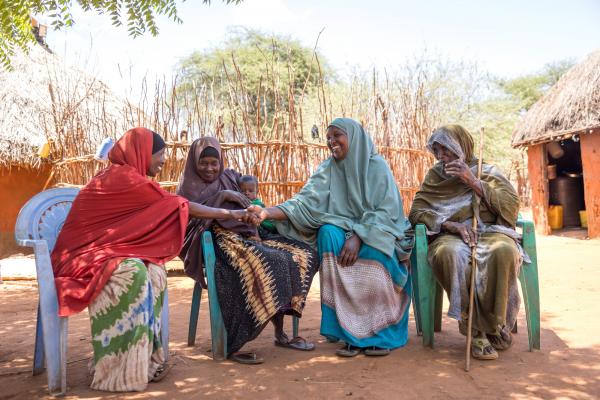
On International Day of Peace, in September last year, Rahma looked around with a sense of pride. "On this day, we did tree planting." This isn't only an important initiative to combat climate change. It also represents a collective attempt to build a future free from conflict, and as the roots grow stronger and the branches extend their reach, so will the hope of lasting peace.
With your support, Galgalo is one of many local people involved in community activities to build safer, more secure lives. VSO is strengthening peace through:
- Hay-making, goat farming and drought- resistant crops: With VSO's support, families are adapting to the changing climate, so they can continue to grow crops and keep livestock.
- Water storage: VSO is installing 10,000-litre water tanks so people can access clean water. The tanks serve the whole village, not just individual families, helping to promote social cohesion through shared resources.
- More power: Local people have formed 21 peace committees and 21 disaster risk reduction committees. These bring people together to take positive action to protect peace and mitigate climate risk. But the committees also speak on behalf of the community to local and national government.
By donating today, you could give a community living in fear the chance to build peace, and with those firm foundations in place, safer, more secure lives.
Please will you give a gift today and help families like Galgalo and Guyatu’s build a brighter future?
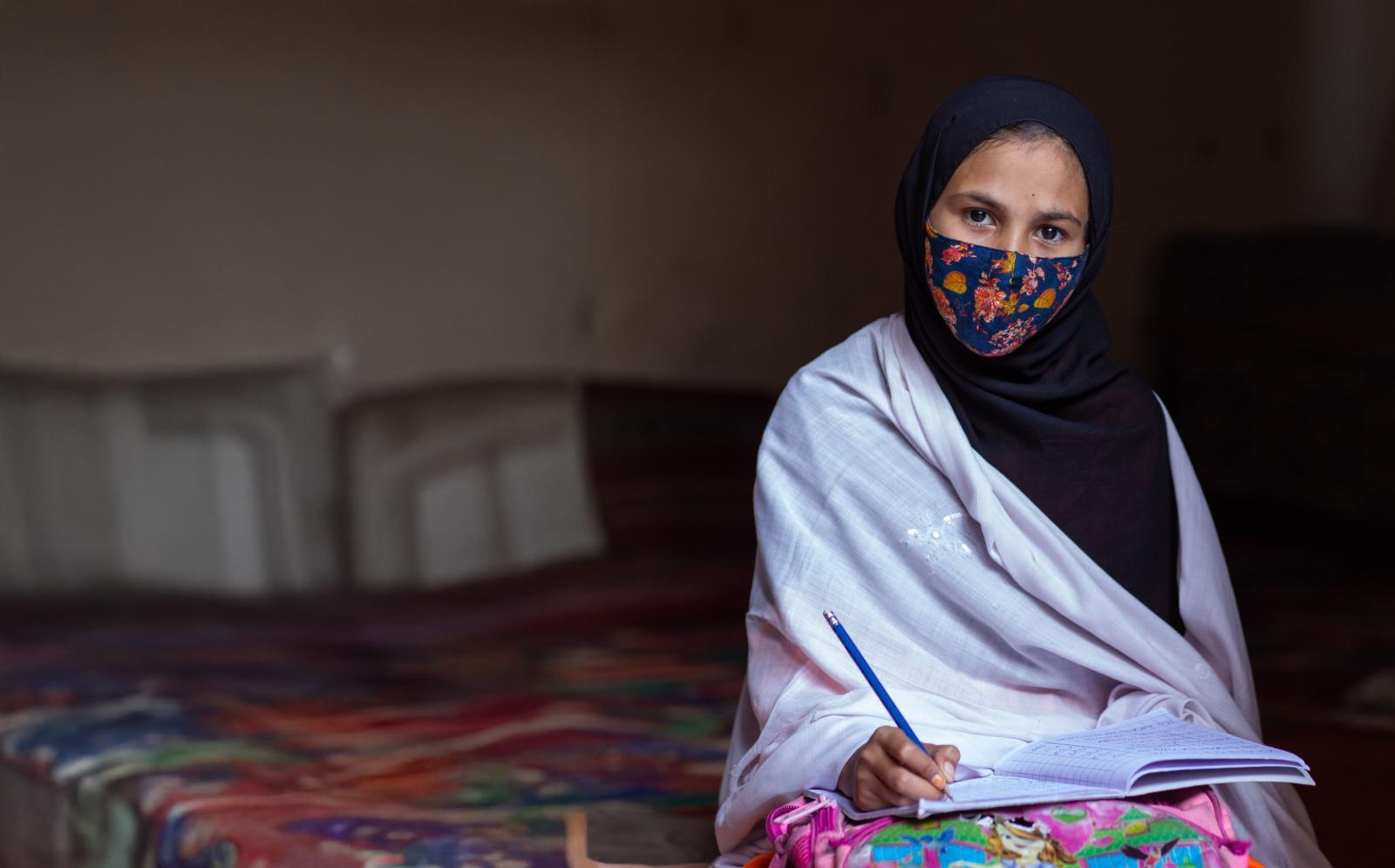
An education can’t wait. Every day counts.
An education is a fundamental human right. But many children – including Afghan refugees in Pakistan – are missing out on learning the skills they need to build a better life.
Please help bring more children like Najeeba* back into the classroom.
Read more

Opening doors to safety, education, and a brighter future
For girls in Karamoja, the poorest region in Uganda, being forced into early motherhood is all too common. Many girls are a risk of assault. Nowhere is safe. Will you open the door to safety and an education?
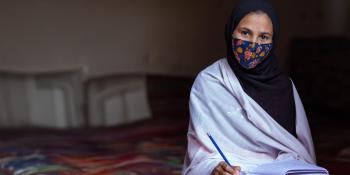
An education can't wait
An education is a universal human right, yet refugees like nine-year-old Saad* and 12-year-old Najeeba* are missing out. Having fled the conflict in Afghanistan, they’re now living in Pakistan. Out of school, children are in danger. Every day counts. You can help bring them back into class.
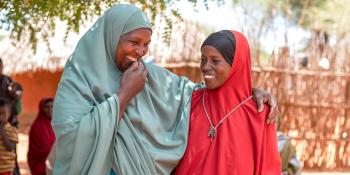
Video: What does peace mean to you?
Watch our video which spotlights the story of Galgalo and his family who are bearing the brunt of conflict and climate change and discover how you're helping them feel no longer powerless.
